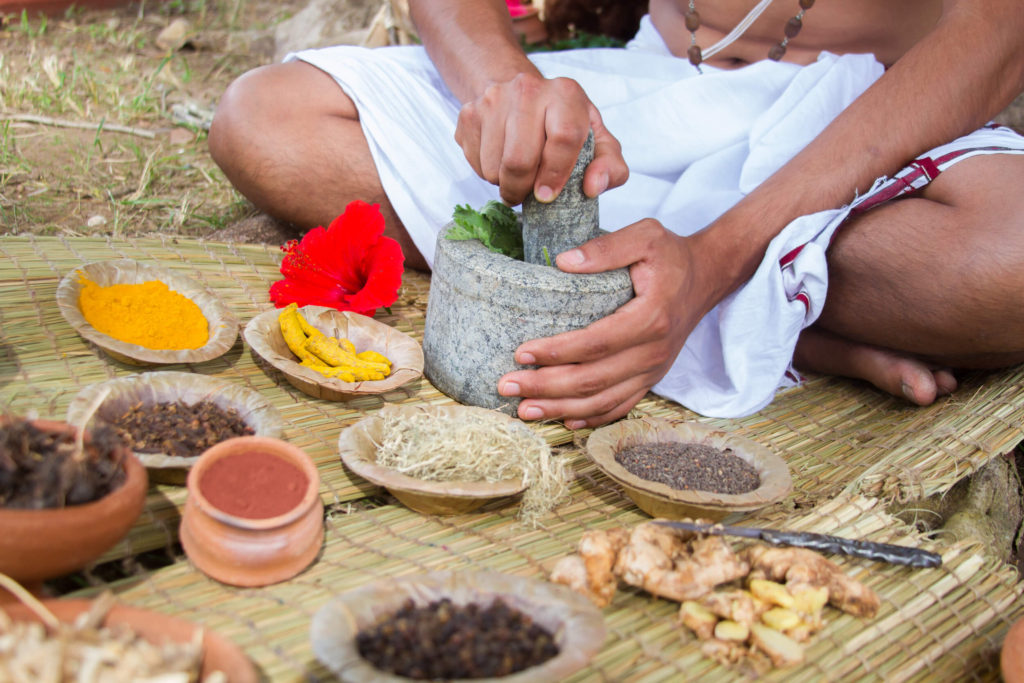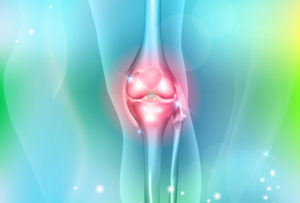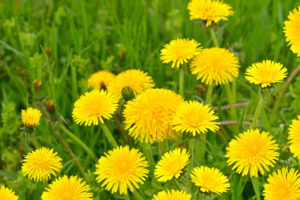Ayurveda is an ancient Indian medical tradition -but it is so much more than that.
The word Ayurveda means “the science of life”. Unlike Western medicine, Ayurveda treats the whole person, including the mind, the body, and the spirit. To do this, Ayurvedic practitioners examine a patient’s body and also ask questions about the patient’s diet and mental state. Examples of Ayurvedic treatments include detoxification, prescribed changes to diet, lifestyle changes, and taking one or more varieties of ancient herbs.

Here are six of the most commonly prescribed herbs and their uses in Ayurvedic medicine. But don’t take our word that they’re effective–we’ve also included the scientific research to back up their health claims.
INTRODUCTION TO AN HERBAL POWERHOUSE
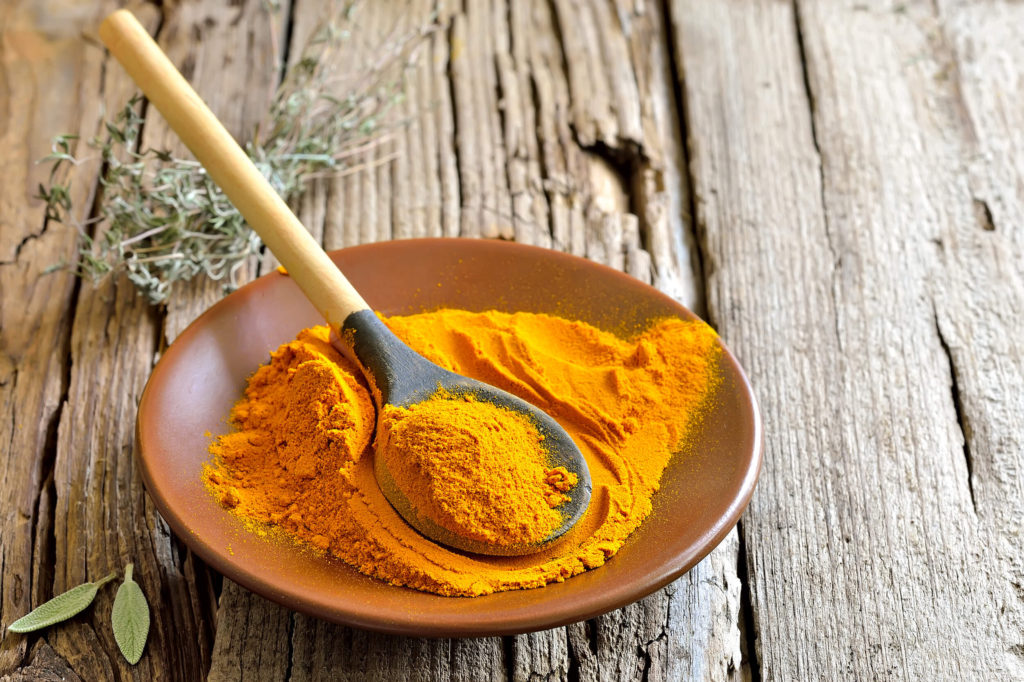
1. TURMERIC
This bright yellow powder comes from the roots of the turmeric plant. The active component in turmeric is curcumin. Turmeric is prescribed in Ayurvedic medicine mainly because of its anti-inflammatory and pain-relieving properties. It has been used historically for reproductive health, epilepsy, skin disorders, digestive issues, and detoxification. A 2011 analysis of turmeric studies found that “the activities of turmeric include antibacterial, antiviral, anti-inflammatory, antitumor, antioxidant, antiseptic,… and cardioprotective“
ASHWAGANDHA A POWERFUL ADAPTOGEN
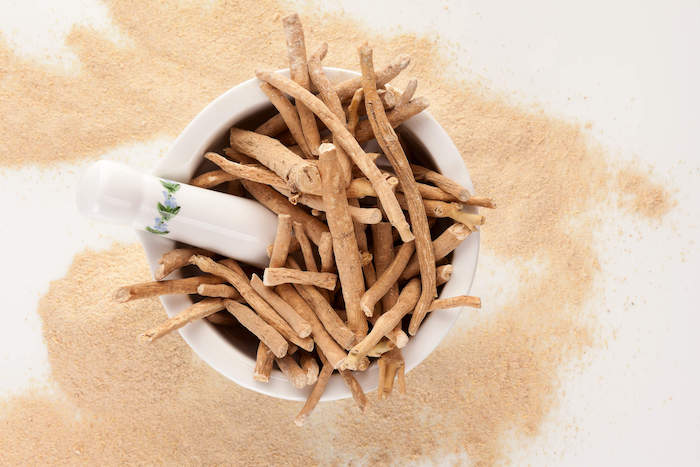
2. ASHWAGANDHA
Ashwagandha is sometimes called Indian ginseng, although it’s not related to the ginseng plant. Ashwagandha comes from the roots of a shrub. In Ayurvedic medicine, ashwagandha is a Rasayana–an herb for health and vigor. Many people take ashwagandha for stress and anxiety, arthritis, and heart health. A 2000 animal study published in the journal Phytomedicine found that ashwagandha can effectively lessen anxiety and depression.
PSYLLIUM HUSK FOR DIGESTION
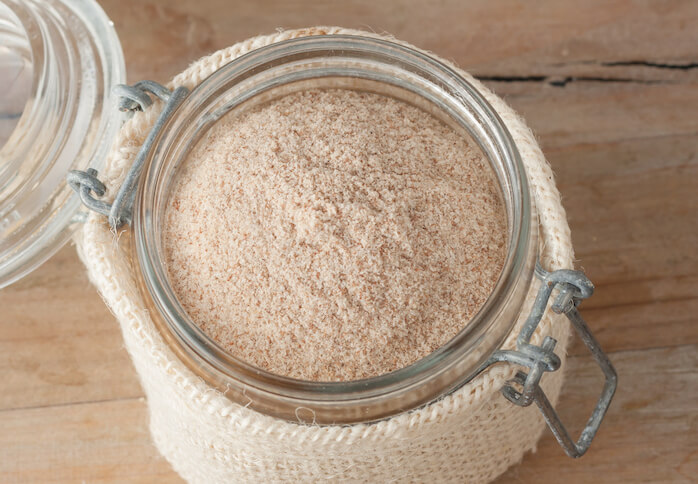
3. PSYLLIUM HUSK
Psyllium husk is also called isabgol. It is made from the outside part of seeds from the plantago ovata plant. Ayurvedic practitioners use psyllium husk to aid digestion and for skin health. It’s very rich in fiber and is often used as a mild laxative. Psyllium husk is also used as an antidiarrheal, for heart health, to lower cholesterol, to lower blood sugar, and as a weight-loss aid. A study from the University of London found that taking psylliu
BACOPA FOR MENTAL ALERTNESS
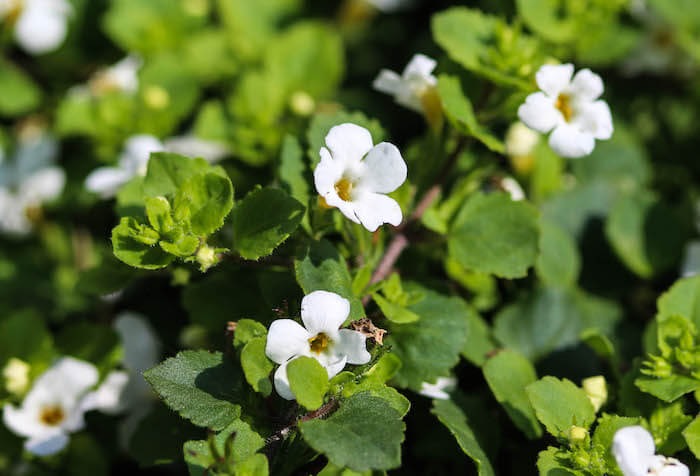
4. BRAHMI
Also called bacopa, Brahmi is a perennial herb that grows in wetland areas. Brahmi is most commonly associated with brain function. In Ayurvedic medicine, it is often prescribed as a brain tonic or for mental health issues such as anxiety and mental fatigue. It is also a natural adaptogen or stress reliever. A 2002 study from Australia found that taking Brahmi helped study participants remember new information. There is also some evidence Brahmi can help with Alzheimer’s disease and dementia, chronic pain, ADHD, and epilepsy.
INDIAN MADDER FOR PURIFYING BLOOD

5. MANJISTHA
This herb’s botanical name is Rubia cordifolia, and it’s also sometimes known as Indian madder. Manjistha is used in Ayurveda to purify the blood. It is used for many specific reasons, such as reducing fever, improving the complexion, and improving urinary health. A 2011 study published in the Indian Journal of Pharmacology found that manjistha protected cells from oxidative damage. This is due to the herb’s strong antioxidant properties. Manjistha also has anti-inflammatory and antibacterial properties.
HOLY BASIL HEALTH BENEFITS
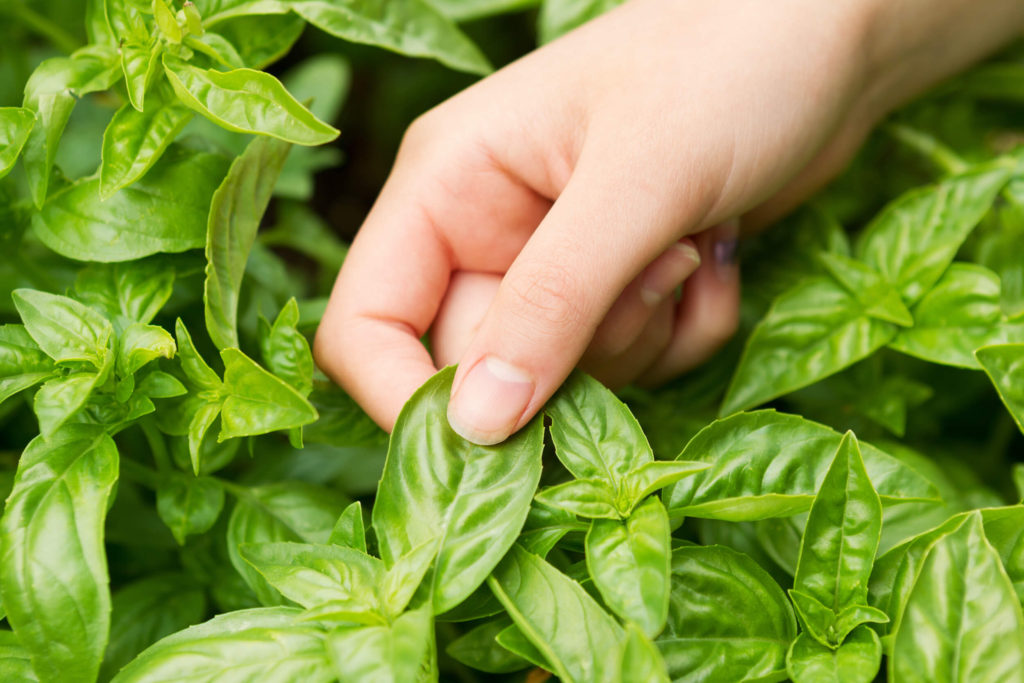
6. HOLY BASIL
Holy basil, also known as tulsi, is an important herb to the Ayurvedic tradition. Historically, it has been used for medical issues such as heart conditions, breathing difficulties, and eye health. Scientific research has shown that holy basil can be used to treat stress and anxiety, high blood sugar, and high blood pressure. A scientific review of human studies on holy basil found that the herb “may assist in normalizing glucose, blood pressure, and lipid profiles, and dealing with psychological and immunological stress“. The holy basil plant is considered sacred in its native India.
Ayurveda uses natural treatments such as these six herbs to balance the body, mind, and spirit by strengthening each individual factor that may have been weakened or compromised due to improper living habits. Scientific research has proven what Ayurvedic practitioners have known for thousands of years – herbs are very powerful medicines that allow you to maintain good physical wellness while at the same time alleviating your mental stress during difficult times without any harmful side effects! Remember to consult a medical practitioner before your start using these powerful Ayurvedic herbs. READ FULL MEDICAL DISCLAIMER ==>
YOU MAY ALSO LIKE:
WISDOM & COMPASSION: THE TWO “WINGS” OF YOGA PRACTICE
By Elizabeth Reninger In the same way that a bird requires two wings in order to fly, a human being requires…
THE SURPRISING HEALTH BENEFITS OF WEARING COMFORT SHOES
Back in the heyday of the healthy shoe movement, A.K.A. the 1960s, healthy shoes were in style. The flatter the better,…
CHI NEI TSANG – WHAT YOU NEED TO KNOW
Chi Nei Tsang (CNT) is a healing practice developed by the Taoist monks in ancient China. Chi Nei Tsang translates into…
NATURAL REMEDIES TO ALLEVIATE ARTHRITIS PAIN
It’s quite likely that either you or someone who you know suffers from mild, moderate or severe osteoarthritis: the “wear and…
COLOSTRUM BASICS: WHAT IS IT & WHY IS IT USED AS A SUPPLEMENT? (PART ONE)
While it may seem strange for humans to use bovine (i.e., cow) colostrum as a supplement, there are many excellent reasons…
DANDELION – MORE THAN JUST A STUBBORN WEED
In traditional herbal medicine practices, dandelion has been recognized for a wide variety of health beneficial properties for centuries. Nutritional content: …

